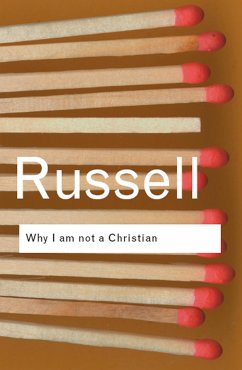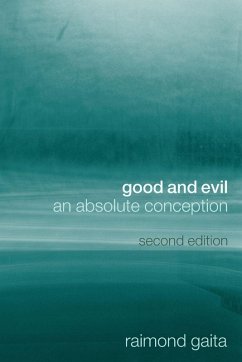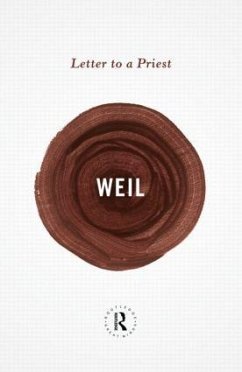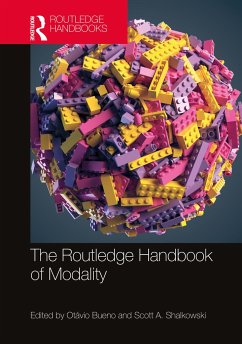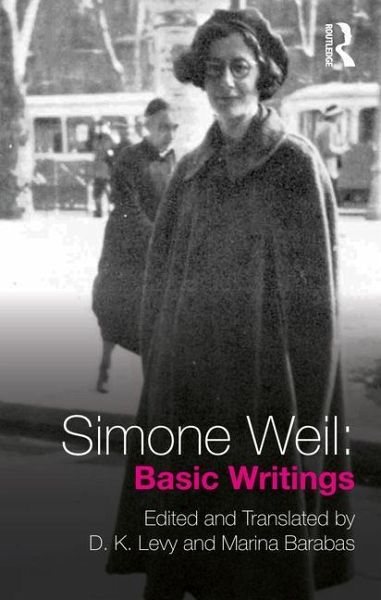
Simone Weil
Basic Writings
Herausgegeben: Levy, D. K.; Barabas, Marina
Versandkostenfrei!
Versandfertig in 6-10 Tagen
40,99 €
inkl. MwSt.
Weitere Ausgaben:

PAYBACK Punkte
20 °P sammeln!
Simone Weil is one of the most profound and thought-provoking thinkers of the 20th century. A teacher, factory and farm labourer, a political activist at home and abroad, a loving friend, daughter and sister-all these manifest a life devoted to the good in its many forms. Her writings explore the good open to us and the various routes to it, spanning philosophy, politics, science and spirituality. While she saw her vocation primarily as a philosopher-examining questions concerning human faculties, action and thought, the limits of language and our need of mediation, suffering and beauty for co...
Simone Weil is one of the most profound and thought-provoking thinkers of the 20th century. A teacher, factory and farm labourer, a political activist at home and abroad, a loving friend, daughter and sister-all these manifest a life devoted to the good in its many forms. Her writings explore the good open to us and the various routes to it, spanning philosophy, politics, science and spirituality. While she saw her vocation primarily as a philosopher-examining questions concerning human faculties, action and thought, the limits of language and our need of mediation, suffering and beauty for contact with reality-her startlingly original thought is often obscured by her having been too readily categorized as a Christian mystic.
Simone Weil: Basic Writings is an expertly edited anthology of Weil's most important writings, presenting her philosophy as it relates to the architecture of human nature, politics, work, necessity, beauty, goodness and God. Working from the definitive French edition of Weil's complete writings, D. K. Levy and Marina Barabas have translated the essays anew or for the first time, adding important notes and references absent from existing English language editions of Weil's work.
Following an extensive introduction that gives an overview of Weil's life and thought, each part opens with a short preface situating the selected essays within Weil's oeuvre.
Simone Weil: Basic Writings provides an excellent entry point to Weil's philosophy, as well as a reference for students and scholars of Weil's thought in philosophy and related disciplines.
Simone Weil: Basic Writings is an expertly edited anthology of Weil's most important writings, presenting her philosophy as it relates to the architecture of human nature, politics, work, necessity, beauty, goodness and God. Working from the definitive French edition of Weil's complete writings, D. K. Levy and Marina Barabas have translated the essays anew or for the first time, adding important notes and references absent from existing English language editions of Weil's work.
Following an extensive introduction that gives an overview of Weil's life and thought, each part opens with a short preface situating the selected essays within Weil's oeuvre.
Simone Weil: Basic Writings provides an excellent entry point to Weil's philosophy, as well as a reference for students and scholars of Weil's thought in philosophy and related disciplines.






